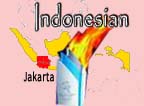Indonesia set to execute two Nigerians for drug smuggling
 Jakarta - Indonesia plans to carry out its first executions for drug offenses in four years Thursday night when two Nigerians found guilty of smuggling heroin into the country are to go in front of a firing squad, officials said.
Jakarta - Indonesia plans to carry out its first executions for drug offenses in four years Thursday night when two Nigerians found guilty of smuggling heroin into the country are to go in front of a firing squad, officials said.
Attorney General Hendarman Supandji confirmed Samuel Iwachekwu Okeye and Hansen Anthoni Nwaoysa would be executed in Central Java.
"The executions will be carried out tonight," Supandji told reporters Thursday after attending a function to observe the International Day against Drug Abuse and Trafficking.
Okeye and Nwaoysa were caught smuggling about 7 kilograms of heroin into the country at Jakarta's Soekarno-Hatta International Airport. They were convicted and sentenced to death in 2001.
Indonesian President Susilo Bambang Yudhoyono turned down the two men's requests for clemency three years later.
The last person to be executed for a drug offence in Indonesia was an Indian national and two Thais in 2004.
Supandji said there were nearly 60 people on death row in Indonesia, many of them citizens of African and Asian countries sentenced for drug offences.
Indonesia's national police chief, General Sutanto, who like many Indonesians uses only one name, said the executions of drug traffickers on death row needed to be speeded up.
"To give them a lesson, drug traffickers must be executed immediately," Sutanto said, adding that detaining drug traffickers in prisons did not discourage them because they use jails as drug-trafficking hubs.
"International drug-trafficking syndicates have in fact been run from jails, so prisons cannot stop the crime," Sutanto was quoted as saying by the state-run Antara news agency.
Executions in Indonesia are by firing squad, usually carried out at night in isolated and undisclosed locations. The prisoner is notified of his execution date at least 72 hours beforehand.
Human rights campaigners have pushed for an end to the death penalty, which they argued has proven ineffective in deterring drug dealers and violates human rights. (dpa)